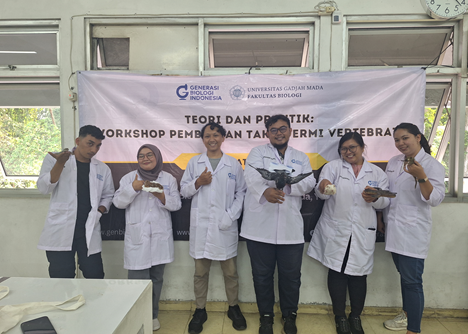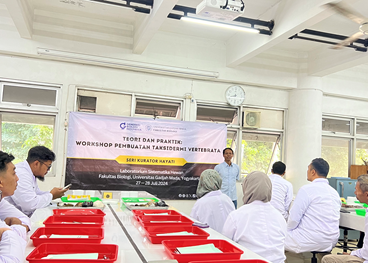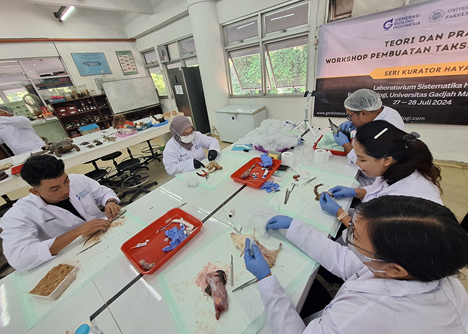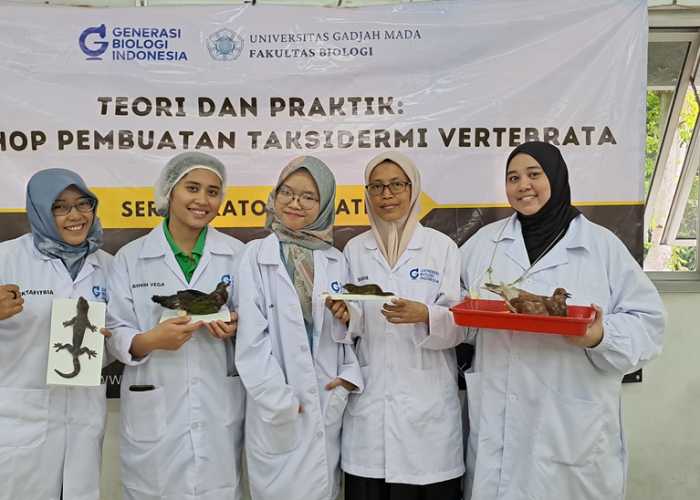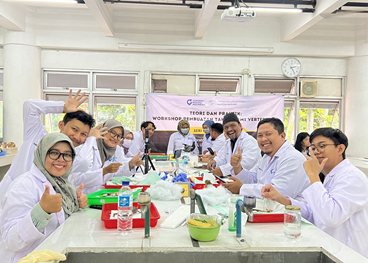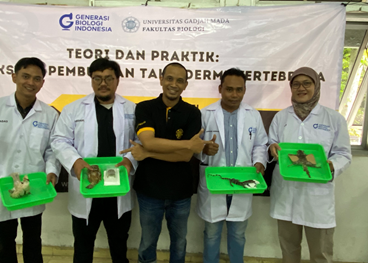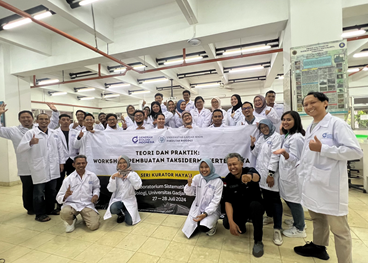The Animal Systematics Laboratory Faculty of Biology, UGM, in collaboration with the Indonesian Biology Generation Foundation (Genbinesia), organized a Workshop on Vertebrate Taxidermy from July 26 to 28, 2024. The workshop featured Donan Satria Yudha, S.Si., M.Sc., Dr. Rury Eprilurahman, S.Si., M.Sc., and Dr. Dwi Sendi Priyono, S.Si., M.Si. as speakers. Donan Satria Yudha, S.Si., M.Sc. delivered the Basics of Taxidermy, Ethics of Taxidermy, and Types of Fauna for Taxidermy. The next speaker Dr. Rury Eprilurahman, S.Si., M.Sc. presented an Introduction to Fauna Photography Techniques, and Dr. Dwi Sendi Priyono, S.Si., M.Si discussed an Introduction to Fauna Biodiversity Monitoring Techniques Using the Latest Technology. These topics are closely related to taxidermy, especially in understanding the general poses of animals when they were alive and identifying fauna through molecular methods. The training was assisted by two postgraduate students from the Faculty of Biology UGM, Rashif Naufal Andhika, S.Si., and Ananto Puradi Nainggolan, S.Si., along with Rahma Izzati, S.Si., an alumna from The Faculty of Biology and FX Sugiyo Pranoto, S.Si., the UGM Biology Museum technician.
The workshop inaugurated by the Head of the Tropical Biology Department Faculty of Biology UGM, Abdul Razaq Chasani, S.Si., M.Si., Ph.D.. The event aimed to achieve three primary goals: (1) Expand the community service activities of the Faculty of Biology UGM and the Animal Systematics Laboratory in line with their areas of expertise; (2) Strengthen the role and reputation of the Faculty of Biology UGM in biodiversity-related fields, with a focus on vertebrate fauna; and (3) Act as a promotional platform for the Faculty of Biology, particularly highlighting the Biodiversity Curator Professional Study Program (PKKH). The training had 23 participants from various institutions, including lecturers, zoo staff, high school teachers, postgraduate students, laboratory technicians, veterinarians, and employees from PT Freeport Indonesia.
This training contributes to achieving the Sustainable Development Goals (SDGs), particularly in SDGs No.4 on Quality Education, SDGs No.15 on Life on Land, and SDGs No. 17 on Partnerships for the Goals. All participants received certificates for their participation. The training is expected to provide insights into taxidermy, particularly on becoming a biological curator and understanding the ethics and procedures of taxidermy.

